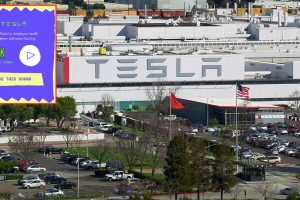Key Takeaways
- Tesla received a warm welcome from India’s Minister of Commerce, Piyush Goyal, indicating support for foreign investment in manufacturing.
- Goyal emphasized that construction and vehicles are major pollution sources in cities, underlining the need for electric vehicles.
- The Indian government is committed to promoting electric vehicles as a means to achieve a cleaner environment.
- Piyush Goyal plans to engage in discussions with U.S. President Donald Trump regarding a significant bilateral trade deal.
- The potential trade agreement between India and the U.S. aims to enhance economic collaboration and capitalize on mutual strengths.
The recent endorsement of Tesla by India’s Minister of Commerce and Industry, Piyush Goyal, marks a significant moment in the relationship between global enterprises and Indian economic policy. This warm reception not only highlights India’s openness to foreign investment but also underscores the country’s determined push towards sustainable urban development through electric vehicle (EV) adoption. Let us delve deeper into the implications of Tesla’s entry into the Indian market, the push for cleaner energy, and the broader economic implications for India and the United States.
The Welcome Mat for Tesla: A Clear Signal for Green Growth
India’s support for Tesla ventures beyond mere economic attraction. With Piyush Goyal welcoming Tesla and other global companies that are interested in investing and setting up manufacturing in India, it becomes clear that the Indian government is keen on nurturing an environment conducive to sustainable innovations.
The Role of Construction and Vehicles in Pollution
Goyal’s statements draw attention to two major contributors to urban pollution: construction activities and fossil-fuel-powered vehicles. Current reports suggest that cities around the world are grappling with increasing pollution levels, and India is no exception. The focus on electric vehicles is not just about reducing fossil fuel dependency but is also a strategic approach towards meeting India’s environmental goals. The necessity to mitigate pollution has become more pressing, making the integration of electric vehicles a crucial part of the solution.
Government Commitment: Turning Ambition into Action
The Indian government’s commitment is backed by various initiatives aimed at promoting the adoption of electric vehicles. By encouraging manufacturers like Tesla to operate within its borders, India aims to speed up this transition considerably. The entry of a leading EV manufacturer like Tesla can potentially:
- Stimulate Local Manufacturing: Encouraging technological transfer and boosting domestic manufacturing capabilities.
- Reduce Import Bills: By replacing petrol and diesel vehicles with EVs, India can significantly cut down its oil import expenses.
- Create Job Opportunities: Manufacturing and allied services around EVs can generate substantial employment.
Bilateral Trade Talks: A New Chapter in India-U.S. Relations
Beyond environmental and economic impacts, Goyal’s announcement hints at an impending paradigm shift in trade relations between India and the United States. Plans to engage in discussions with U.S. President Donald Trump mark an effort to establish a robust bilateral trade agreement that could redefine economic cooperation between the two nations. Such a deal is positioned as “the mother of all deals,” reflecting its potential to unlock vast economic opportunities.
Economic and Strategic Implications
- Enhanced Market Access: For both nations, facilitating smoother access to each other’s markets can increase trade volumes and foster economic growth.
- Technology Transfer: Greater collaboration might lead to improved technology sharing, benefiting sectors like renewable energy and manufacturing.
- Strengthened Strategic Alliance: A strong economic partnership can fortify diplomatic ties, positioning both countries as key global players.
Paving the Path Forward
Tesla’s venture into the Indian market is much more than just a business expansion—it symbolizes a strategic alignment of economic, environmental, and political interests. The welcoming stance of the Indian government combined with the potential trade agreements with the United States serves as a testament to India’s growing prowess on the global stage and its commitment to sustainability. As the dialogue progresses, watching how these elements unfurl will be invaluable, shaping the regional and global landscape for years to come.





